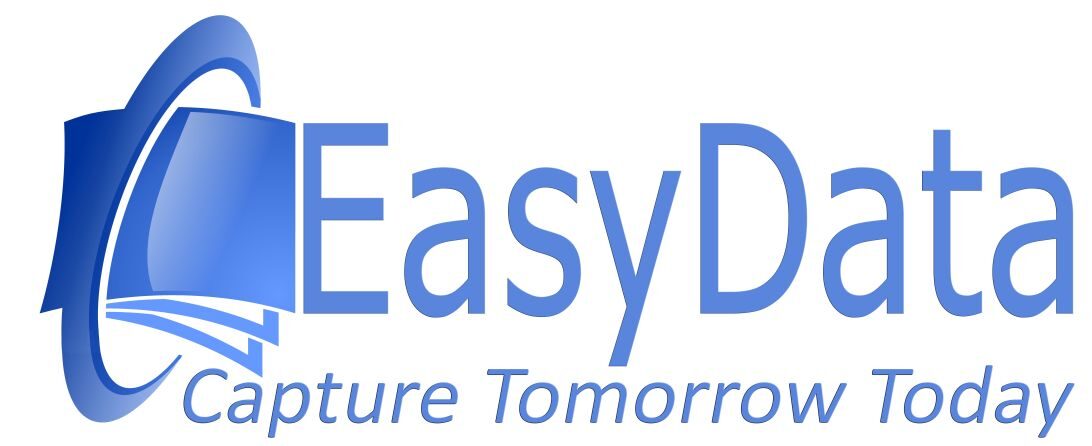Nextcloud: The secure cloud model that truly protects your data
The European path to digital freedom
Schedule your Nextcloud demo
Enterprise Server Security
Servers configured according to strict international security guidelines for maximum protection
Discover our security approach →100% internet.nl
Full score on the Dutch government standard for website security
View our 100% score →TLS 1.3 Encryption
All data encrypted in transit and at rest with the latest encryption standards
Read about TLS 1.3 →EU Datacenter
Physical servers in Europe, full GDPR compliance and data sovereignty
View our datacenter →The power of Nextcloud, the assurance of EasyData
EasyData delivers professional Nextcloud environments for organizations serious about data security. Unlike standard cloud providers, we combine 25+ years of expertise in document processing with enterprise-grade server security.
Our maximum secured servers and 100% internet.nl score demonstrate that we go beyond standard hosting. We offer a complete collaboration environment that meets the strict requirements of municipalities, healthcare institutions, and enterprises.
Full control, without compromise
Every Nextcloud package at EasyData includes a dedicated instance — no shared environments where others have access to your data. You get full administrative control over users, groups, and permissions, while we handle the technical infrastructure, updates, and security.
Enterprise-grade compliance and certifications
🔒 Security
- Enterprise security hardening
- 100% internet.nl score
- TLS 1.2+ / TLS 1.3
- Server-side encryption
- Optional E2E encryption
- IP whitelisting available
📋 Compliance
- GDPR compliant
- Data Processing Agreement
- Data location Europe/EU
- Audit logging (90+ days)
- ISO 27001 datacenter
- NIS2 directive prepared
⚡ Availability
- 99.5% uptime SLA
- Daily backups
- Geographically separated backup
- RTO: max 4 hours
- RPO: max 24 hours
- Annual restore test
Complete Nextcloud functionality
Files & Synchronization
Upload/download all file types, unlimited folder structure, versioning (min. 5 versions), trash bin with 30-day retention, and bidirectional sync with selective folders.
Users & Groups
Full admin control over users and groups. Folder permissions per user/group (read, write, admin). Group folders for team collaboration.
Sharing & Links
Public or protected share links with optional password protection and expiration date. Audit trail of who shares what with whom.
Talk: Video & Chat
WebRTC video conferencing directly in Nextcloud. Screen sharing, group calls, and chat without external dependencies.
Desktop & Mobile
Official Nextcloud clients for Windows, macOS, Linux, iOS, and Android. Offline mode and WebDAV access for flexible integration.
Notes & Tasks
Notes app for knowledge sharing, tasks/to-dos for project management, inline comments on documents. All integrated in one environment.
Optional extensions
Depending on your needs, we can add the following modules:
Collabora Online
Official Collabora partnership: edit Word, Excel and PowerPoint directly in the browser. Enterprise support, GDPR-compliant and seamless Nextcloud integration.
Calendar & Contacts
CalDAV/CardDAV synchronization with Outlook, Thunderbird, and mobile apps. Team calendar and shared address books.
LDAP/SAML Integration
Connection with existing Active Directory or SAML identity providers for single sign-on and centralized user management.
Nextcloud for your industry
Government & Public Sector
GDPR-compliant sharing with citizens, secure internal collaboration, audit trails for accountability. Meets public sector requirements.
Healthcare & Welfare
Meets NIS2 cybersecurity requirements, secure exchange of sensitive data, E2E encryption option for confidential files.
Legal & Financial
Securely share confidential documents with clients, password-protected links, complete audit logging.
SMB & Foundations
Affordable enterprise security, scalable from 5 to 100+ users, no vendor lock-in.
💰 Transparent pricing
Choose the package that fits your organization. All packages include enterprise server security, daily backups, updates, and personal support.
- ✓ Dedicated Nextcloud instance
- ✓ Maximum secured server
- ✓ Daily backups
- ✓ Personal support
- ✓ Basic onboarding
- ✓ Everything in Pilot, plus:
- ✓ Extended admin training
- ✓ Group folders configuration
- ✓ Priority support
- ✓ Monthly health check
- ✓ Everything in Team, plus:
- ✓ LDAP/SAML integration
- ✓ Dedicated account manager
- ✓ On-site training available
- ✓ Custom SLA options
Custom solutions available — request a free assessment for a tailored solution.
EasyData vs. standard Nextcloud hosting
| Feature | EasyData | Standard hosting |
|---|---|---|
| Enterprise server security | ✓ | ✗ |
| 100% internet.nl score | ✓ | Often < 80% |
| Dedicated instance | ✓ | Multi-tenant |
| European datacenter | ✓ | Often unknown |
| 25+ years expertise | ✓ | ✗ |
| AI document services available | ✓ | ✗ |
| Personal support | ✓ | Often ticket-based |
Ready for a Nextcloud environment that’s truly secure?
Start with a free assessment. We analyze your situation and provide concrete recommendations, no obligations.
🇪🇺 What you can expect
Setup within 5 business days — From agreement to working environment
Onboarding included — Training for admins and first users
No vendor lock-in — Your data always remains yours, exportable on request
Monthly cancellation — Flexible contracts, 30-day notice period
Frequently asked questions
How quickly can my Nextcloud environment go live?
For a standard setup with 5-10 users, we can go live within 5 business days. This includes security hardening, configuration of users and groups, and a brief training for administrators. For more complex setups with LDAP integration or customization, we estimate 2-3 weeks.
What exactly does enterprise server security involve?
We configure servers according to strict international security guidelines: unnecessary services disabled, strict access control, firewall rules, automatic security updates, and regular audits. This goes far beyond standard hosting and is comparable to what large enterprises and governments require.
What does a 100% internet.nl score mean?
Internet.nl is the official Dutch test for website security, developed by the government. A 100% score means we meet all modern security standards: HTTPS, DNSSEC, security headers, modern TLS configuration, and more. Many websites score below 60% — our servers consistently achieve 100%.
Where are your servers physically located?
Our primary servers are located in European datacenters with ISO 27001 certification. Backups are stored in geographically separated locations within the EU. All data remains within European borders and falls under European legislation — no American cloud providers subject to the CLOUD Act.
How does disaster recovery (RTO/RPO) work?
We make daily incremental backups to a geographically separated location. In case of a disaster, we guarantee a Recovery Time Objective (RTO) of maximum 4 hours — that’s the time until your environment is available again. The Recovery Point Objective (RPO) is maximum 24 hours — that’s the maximum data loss during restore. We conduct annual restore tests and report the results.
Do you support end-to-end encryption?
Yes, as an optional module. With E2E encryption, files are encrypted on the user’s device before they go to the server. Even we as administrators cannot read the content. This is ideal for very sensitive documents, but has an impact on functionality (no server-side preview/search). We’re happy to advise on the right balance for your situation.
Can you make audit logs available for internal audits?
Absolutely. We log login/logout events, file access and modifications, and all sharing actions (who shares what with whom). We retain these logs for a minimum of 90 days and can export them on request for compliance audits or internal reviews.
How does the Data Processing Agreement (DPA) work?
We have a standard Data Processing Agreement that meets GDPR requirements. It clearly states that we are a processor (not owner of your data), which sub-processors we use, and what security measures we take. Signing can be done digitally and usually takes 1-2 business days.
Is a discount available for a pilot period?
Yes, for new customers we offer a pilot rate for the first 6 months. We also have special rates for foundations and non-profits. Contact us for a custom quote — we’re happy to work with you on a suitable solution within your budget.
What are the cancellation options?
We have a 30-day notice period. Upon termination, you receive a complete data export in standard formats. We can assist with migration to another provider if desired — no vendor lock-in, your data always remains yours.
Disclaimer: Prices are indicative and dependent on specific requirements. Mentioned SLAs and RTO/RPO guarantees apply within agreed contract terms.
Server security and internet.nl scores are regularly audited. For current certifications and compliance documentation, please contact us.

